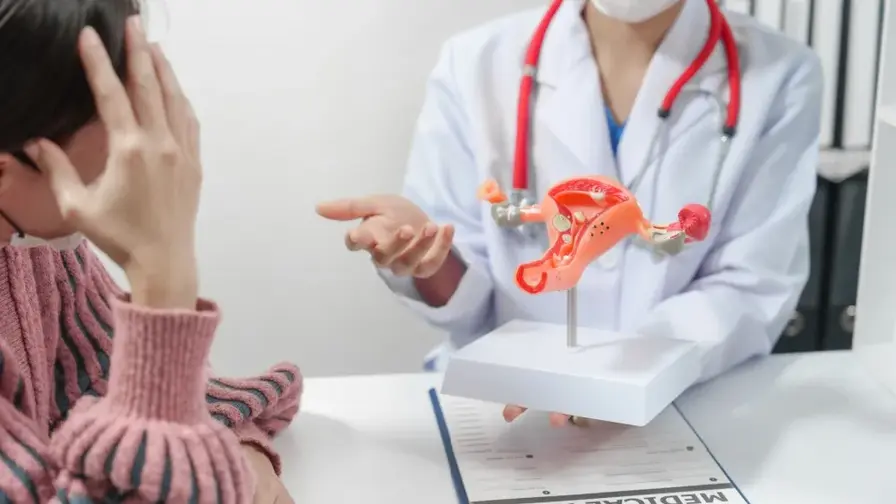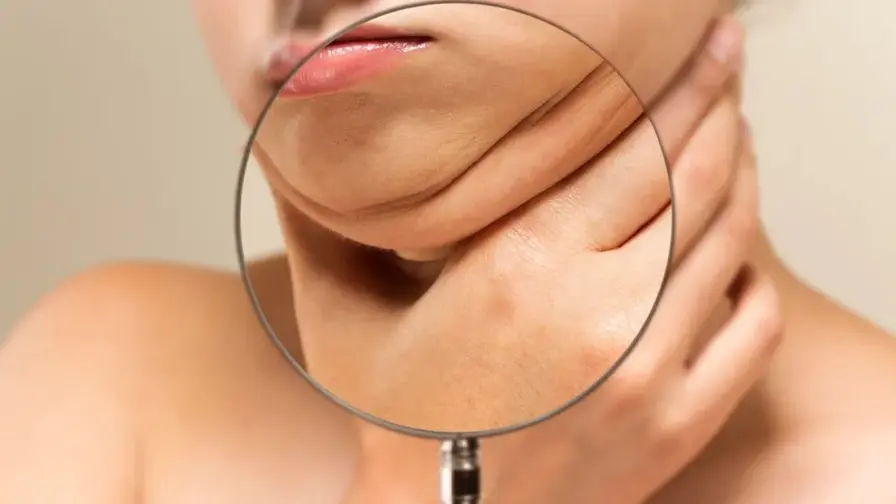Is Gastroesophageal Reflux Compressed by Uterine Fibroids? A famous gynecological doctor revealed: If you have this kind of constitution, you should take less Chinese and Western medicines and royal jelly

What are the symptoms of uterine fibroids? Be careful if you find fibroids after menopause
If uterine fibroids grow too large, may they become cancer? Dr. Zheng Chengjie, executive director of Taipei Xiuchuan Hospital and professor of obstetrics and gynecology at Kaohsiung Medical University, said that the cause of uterine fibroids is related to female hormone (estrogen, estrogen) receptors and does not occur before puberty. 90% of patients are uterine fibroids. Between the ages of 30-50. Postmenopausal uterine fibroids should be especially noted as they may be related to cancer, but generally speaking, the chance of uterine fibroids evolving into cancer is only about 0.002%.
Dr. Zheng Chengjie pointed out that when uterine fibroids are large enough, they will compress surrounding organs and cause symptoms. If they compress the bladder in the front, they will cause frequent urination and difficulty urinating. If they compress the rectum and anus in the back, they may cause constipation and changes in defecation patterns. They may also compress the upper part of the body. , leading to bloating, hyperacidity, gastroesophageal reflux, etc.
Uterine fibroids treatment? Even her gastroesophageal reflux was cured after the surgery.
“There was a patient whose fibroid grew to 40 centimeters in size and had difficulty breathing before he came to me for surgery. There was also a patient whose fibroid grew to 20-30 centimeters and pressed upwards to his stomach. Later, the fibroids were burned off after performing Haifu Knife. , gastroesophageal reflux, hyperacidity and other symptoms are all gone!”
Dr. Zheng Chengjie explained that if the size of uterine fibroids is less than 3 centimeters, most of them are asymptomatic and can only be followed up and observed regularly. For fibroids larger than 3-5 cm, surgical treatments include traditional massive invasive laparotomy, minimally invasive surgery (laparoscopy, Da Vinci) and non-invasive surgery (Haifu knife). Depending on the size and location of the fibroid, a suitable treatment method will be adopted. Usually if the fibroid is larger than 15 cm, it is more difficult to use minimally invasive surgery. If you do not want to have a major invasive surgery, use the non-incisional Haifu knife treatment, which usually requires two treatments. .
“There are many ways to solve uterine fibroids, but I am very opposed to removing the uterus. The purpose of non-invasive surgery is to avoid using the knife as much as possible. Use a sea knife to burn off the fibroids or let the fibroids shrink slowly, and many symptoms will be improved.”
Dr. Zheng Chengjie said that fibroids over 15-20 centimeters are usually large enough to occupy the pelvic cavity and are close to the pelvic wall. They are relatively unsuitable for minimally invasive surgery. You may choose a large wound surgery with a huge invasiveness, or a non-invasive Haifu knife. Surgery, it is recommended that if you have uterine fibroid problems, discuss treatment methods with your gynecologist as soon as possible.
How to prevent uterine fibroids? Pay attention to your physical condition and eat less Chinese and Western medicine royal jelly
Is the tendency to develop fibroids related to eating too many soy products? Dr. Zheng Chengjie explained that the main cause of uterine fibroids is related to “physical constitution”, which is related to the number and sensitivity of female hormone receptors, and has little to do with food. Monks eat a lot of soy products every day, but they are not special. It is easy to develop uterine fibroids. In addition, there are also some familial factors. Often, mothers, aunts, and sisters all develop uterine fibroids, and they are naturally more likely to develop uterine fibroids than ordinary people. If you have a constitution that is prone to uterine fibroids, you must avoid taking Western medicine, Chinese medicine and royal jelly with high hormone content.
“Women with uterine fibroids should not take hormone-containing Western medicines; Chinese medicinal materials such as Angelica sinensis and wolfberry also contain large amounts of plant hormones, and royal jelly contains high amounts of animal hormones. It is best to avoid these. As for soy milk , yams, alfalfa sprouts and other foods, if you don’t eat them every day, the risk is actually not high!”
Dr. Zheng Chengjie pointed out that as of the beginning of 2022, there had been about 3,800 Haifu Knife uterine fibroid ablation surgeries in Taiwan, of which Zheng Chengjie had treated 1,300 cases, and only three were bhikshuni who were long-term vegetarians and mainly consumed soybeans. Bhikkhunis also account for a very small number of patients treated with other surgical methods. It shows that the relationship between diet and uterine fibroids is not as high as most people imagine, because the content of plant hormones in food is not high, so you should be particularly careful with supplements of traditional Chinese medicine and royal jelly.
In addition, the potential stimulation of environmental hormones is more noteworthy than the effects of food. Dr. Zheng Chengjie believes that the impact of air pollution and environmental hormones, including dioxin, polychlorinated biphenyls, plasticizers, etc., on fibroids is unknown. It is recommended that products such as shower gel and shampoo should not remain on the surface of the body for too long when taking a bath, and cosmetics should be washed off as early as possible to prevent such substances from being absorbed into the body through the skin.
Further reading:





